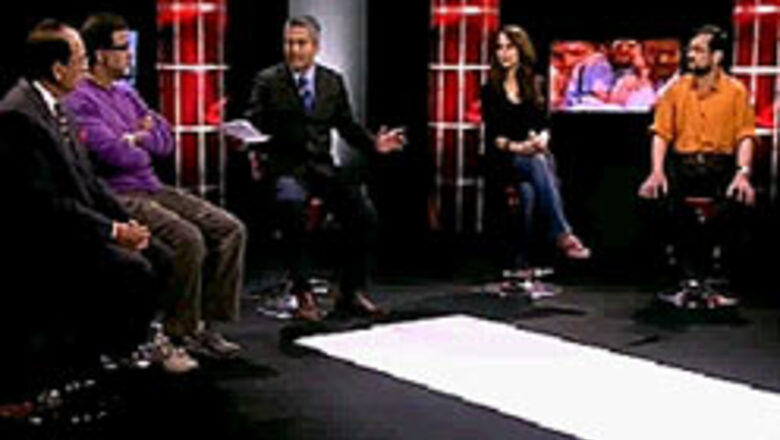
views
How many deaths will it take till he knows
That too many people have died?
The answer, my friend, is blowin' in the wind,
The answer is blowin' in the wind
-- Bob Dylan (Blowin' in the Wind)
After a 62-hour-long operation, Mumbai was reclaimed on Saturday from the terrorists who held it hostage with the bloodiest and one of the most daring operations in the country's history, but not without paying a price.
According to the official estimate, 187 (and counting) people have been killed and the country has lost some of its best men in uniform.
Maharashtra Anti-Terrorism Squad (ATS) Chief Hemant Karkare, encounter specialist Vijay Salaskar, Additional Commissioner of Police Ashok Kamte and National Security Guard (NSG) commando Major Sandeep Unnikrishnan died in the line of duty as did eight other policemen and commandos.
The bloody siege of 26/11 — as it's now being called — is being compared to America's 9/11, and not without reason. Maharashtra Deputy Chief Minister R R Patil's claim that terrorists had sinister plans to kill at least 5,000 people has added to the fear psychosis.
India is angry and is demanding answers. It is the big question: Could more have been done to prevent the Mumbai massacre? Will the country come together? How long will the cycle of terror last and what will it take to put an end to it?
Weekend Edition with Rajdeep Sardesai debated and discussed some of those pertinent questions with a panel comprising IBN-Lokmat editor Nikhil Wagle; celebrity and author Shobhaa De; financial analyst Abhay Aima; former Mumbai police commissioner M N Singh; and MP (south Mumbai) Milind Deora.
FIGHT BACK! BUT HOW?
Underlining the popular sentiment, Shobhaa De began the debate with a "fight back" war cry. “Mumbaikars are burning with rage and are looking for leadership that the city has spectacularly failed to provide. Maharashtra Chief Minister Vilasrao Deshmukh says there was information but not specific ones. As if terrorists will call and inform the CM about the locations they intend to strike! I have never heard such a ridiculous statement," she said.
De insisted heads must roll and the CM and Home Minister Shivraj Patil must resign because it was not just Mumbai under attack. It's India under attack. "Let's not make it a regional problem. What are we waiting for?" she asked.
SMSs like "Danger doesn't come on boats, it also comes from ones who give votes" are being circulated across mobile networks and the Internet has been the witness to the outpouring like never before.
Abhay Aima spoke in the context of "impotent rage" and said it was easy to hold hands and have a candlelight vigil or two, it was very difficult to control who was getting voted from where. "India is also MP, UP, Bihar. That's where these people get voted back," he said.
An angry De also called for a ban on candlelight vigils and asked news channels to not play up "inane" sound bytes from "celebrities mouthing platitudes" at these events.
If there's anger among the citizenry, anger was also palpable at Hemant Karkare's funeral where many policemen expressed distress at the manner in which politicians were compromising the police. But can that anger translate into action? Citizens can't surely wield AK 47s. That's the job of the police. M N Singh agreed the problem of terrorism had been so badly politicised that the nation wasn't together in the fight against it. "We have lost some of our finest men. Mumbai police have done a remarkable job. We must salute them and NSG. One should look at overhauling Mumbai's police apparatus," he said.
PAGE_BREAK
Nikhil Wagle said it wasn't right to put the blame squarely on the politicians. "These are people we elect. We don't support good politicians. There is not civil society leadership and this country is leaderless," he said.
Milind Deora - the only politician on the show and understandably answerable - responded to Wagle but was cautious in his response. "I have similar reactions like people. But attitude of "let's sack someone" looks we just want an easy solution," he said.
But his argument did not cut much ice with De who slammed it completely saying the buck always stops at the leadership and must in this case as well. "I've got calls where people are asking of there should be a civil disobidoence movement and we must no vote as these politicians do not deserve to be voted for," she said.
Aima said he was appalled at Milind Deora's comment while Wagle said young MPs like him should come out and become the agents of change. In fact Aima compared the crisis to that of the reaction in financial crisis. "If Merill Lynch fails, its CEO resigns on moral grounds and not because he has done some wrong. Same logic holds," he said.
Deora ended the segment by responding to other panelists too. "It's said no matter who you vote for, the government always gets in. Yes, heads should roll but before that we must debate on what terrorism means. No doubt the buck stops at CM, PM and home minister but there's also a massive security establishment. That's where reforms are needed," he said.
INDIA IMPAIRED TO HANDLE CRISES LIKE 26/11
AK 47 versus a revolver: it's no match. While the terrorists who held Mumbai hostage were said to be equipped with the latest automatic weapons and ammo, the Mumbai police battling them did not even have as much as a helmet. NSG commandos had to be flown in from Delhi. M N Singh said civil police was no answer to terrorism. "This is the first time there's been a face-to-face combat between police and terrorists. For that, the police are not equipped," he said, adding the state should have a commando force to itself to plug the time lag.
Shobhaa De countered him and said no one knew who was in charge of the operations when Mumbai was under attack. It could also be blamed on the skewed priority list that the establishment seems to go by - national security is just not their priority it would seem. De also blamed it on corruption in police force and called policemen "political stooges".
But who will provide the leadership? Wagle said there was no leader and no answer either. He said he felt helpless. "The Chief Minister did not even know how many terrorists were there in all! We don't even have a figure and our forces were fighting the terrorists for the past 60 hours!" he said.
Deora said he felt frustrated too, being people's representatives and yet not having any executive powers. De questioned Deora's argument and said it was tantamount to saying, "unless you can look after yourself, sorry we can't do much".
Aima proposed a corporate-style functioning for the government. "When the Home Minister says he'll set up ATS, ask him the target dates. Ask him when he'll deliver. Milind Deora should rise above party lines and do that. He'll become a great politician then," he said.
M N Singh stressed the police force was being held hostage to political interests and the establishment was in a siege-like situation. Wagle said these points were made n 1993 as well and questioned as to why these changes weren't incorporated that time itself.
WAKE UP, IT’S TOO LATE ALREADY
PAGE_BREAK
This attack took place in south Delhi, perhaps the country's poshest area. While the previous attacks - like the one in Ghatkopar, a low-income area - happened with "others", this one seems to have hit "home", many would say. "If this doesn't wake up the elite, nothing ever will. But let's not make it a caste thing. It's an attack on the country," she said, adding, "Today they targeted iconic monuments, tomorrow they may target iconic people - all because our security systems are lax. We don't even bother to check the credentials of people who work for us," she argued.
So is the quintessential chalta hai (take it easy) attitude responsible? The "spirit of the city" arguments are made and then, life just moves on. While America put its act together after the major intelligence lapse of 9/11 - even if it meant curbing individual freedoms - M N Singh felt it could not happen in India due to vote-bank politics. "I hope people who are against anti-terrorism laws will come together," he said.
Deora accepted terrorism needed to be dealt with by rising above party lines and also above religious identities. He also accepted the ideal manner in which America dealt with it. "Focus on de-politicisng terrorism debate. At Mumbai level, I do believe that a simple solution would be direct election of Mayor by the city people. This will change city's politics of the city. Also individuals must also be responsible for themselves," he said.
But Wagle said hoping Mumbai would become a city-state was not possible but good poeple must come together and push with the government and demand a Homeland Security-kind of a setup.
Both De and Wagle condemned in strongest words the political opportunism which was at display when Narendra Modi came to Mumbai. Few days ago, he criticised Hemant Karkare for probing into Hindu terror angle in the Malegaon probe and on Friday he offered money to his widow and paid homage to him - simply because he died fighting Islamic terrorists.
UNITED WE STAND
Shobhaa De said Mumbai suffered from collective amnesia and it is likely that areas like north Mumbai may forget or remain untouched by the enormity of the attack. Wagle said people of Mumbai were ready to fight back but don't know what to do. "People are angry but don't know what to do. Just tell them and they will come out and do it. They want a non-corrupt leader," he said.
M N Singh police-people cooperation was necessary but civil society cannot fight terrorism like this. "People are angry and I think we've made too much of the city's resilience. We must stop this tamasha of talking about the spirit of the city," he said. Aima said if there could be an X or a Y votebank, why couldn't there be a votebank of evolved citizens wanting change? "Once you make it substantial enough for it to fight the powers that be, it could make a difference," he said.
Deora concluded the debate by saying that the root of terrorism was ill-sentiments against each others' community. "We must ask ourselves before we go to a community - do we harbour band sentiments against a community? Are we biased?" he asked.
The final words that came out of the show were: Enough is enough. Let's fight back.










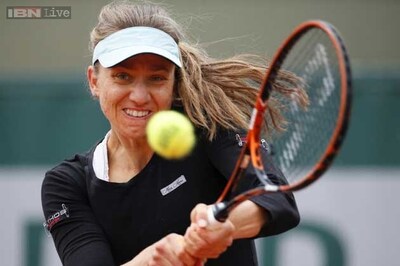

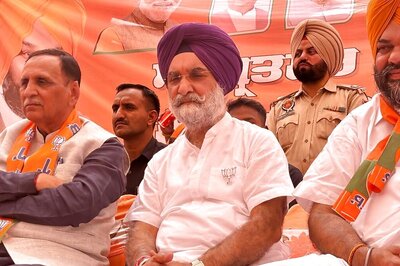
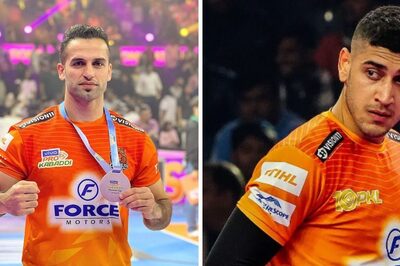
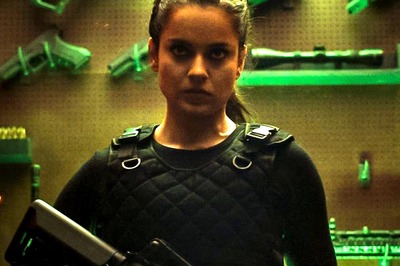


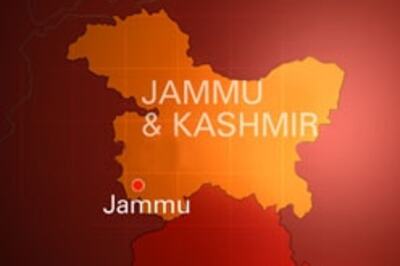

Comments
0 comment